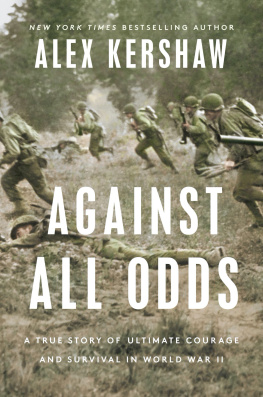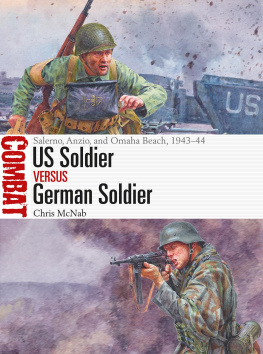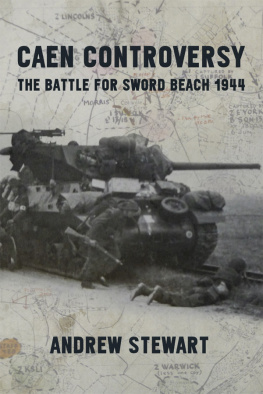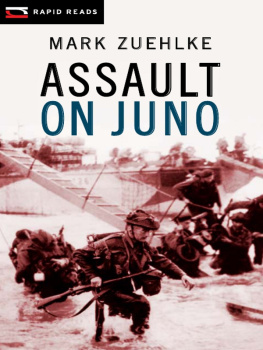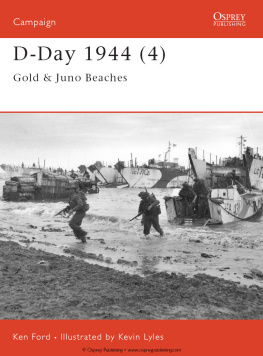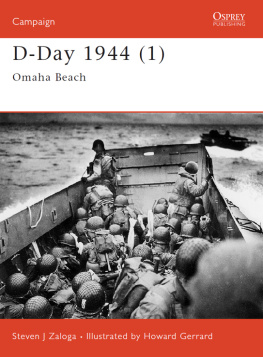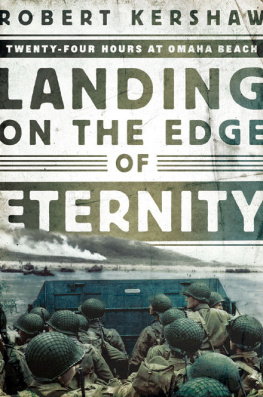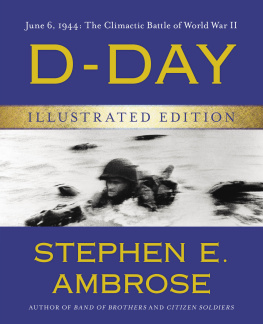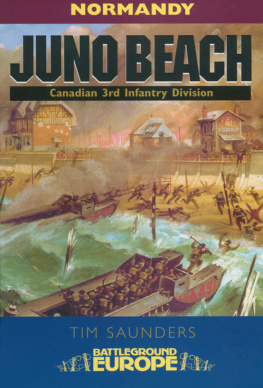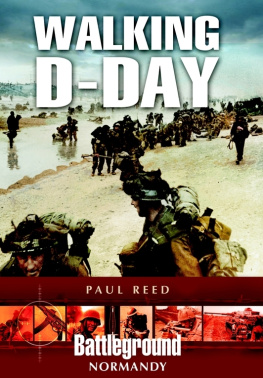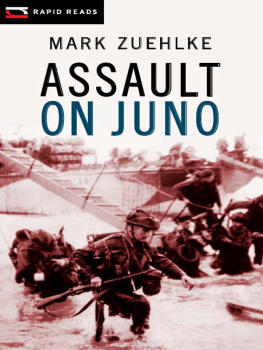For John Snowdon
PART ONE

Twilight of the Idols
When you talk about combat leadership under fire on the beach at Normandy, I dont see how the credit can go to anyone other than the company-grade officers and senior NCOs who led the way. It is good to be reminded that there are such men, that there always have been, and always will be. We sometimes forget, I think, that you can manufacture weapons, and you can purchase ammunition, but you cant buy valor and you cant pull
SERGEANT JOHN ELLERY,
16th Infantry Regiment, US 1st Infantry Division
CHAPTER 1

June 5, 1944
T HE CLOCK IN THE WAR room at Southwick House showed 4 A . M . The nine men gathered in the twenty-five-by-fifty-foot former library, its walls lined with empty bookshelves, were anxiously sipping cups of coffee, their minds dwelling on the Allies most important decision of World War II. Outside in the darkness, a gale was blowing, angry rain lashing against the windows. The weather was terrible, recalled fifty-three-year-old Supreme Allied Commander Dwight Eisenhower. Southwick House was shaking. Given the atrocious conditions, would Eisenhower give the final go-ahead or postpone? He had left it until now, the very last possible moment, to decide whether or not to launch the greatest invasion in history.
Seated before Eisenhower in upholstered chairs at a long table covered in a green cloth were the commanders of Overlord: the no-nonsense Missourian, General Omar Bradley, commander of US ground forces; the British General Bernard Law Montgomery, commander of the 21st Army Group, casually attired in his trademark roll-top sweater and corduroy slacks; Admiral Sir Bertram Ramsay, the naval commander who had orchestrated the miracle of Dunkirkthe evacuation of more than 300,000 troops from France in May 1940; the pipe-smoking Air Chief Arthur Tedder, also British; Air Chief Marshal Sir Trafford Leigh-Mallory, whose blunt pessimism had caused Eisenhower considerable anguish; and Major General Walter Bedell Smith, Eisenhowers chief of staff.
A dour and tall Scotsman, forty-three-year-old Group Captain James Stagg, Eisenhowers chief meteorologist, entered the library and stood on the polished wood floor before Overlords commanders. He had briefed Eisenhower and his generals every twelve hours, predicting the storm that was now rattling the windows of the library, which had already led Eisenhower to postpone the invasion from June 5 to June 6. Then, to Eisenhowers great relief, he had forecast that there would, as he had put it with a slight smile, be rather fair conditions beginning that afternoon and lasting for thirty-six hours.
Once more, Stagg gave an update. The storm would indeed start
Eisenhower got to his feet and began to pace back and forth, hands clasped behind him, chin resting on his chest, tension etched on his face.
What if Stagg was wrong? The consequences were beyond bearable. But to postpone again would mean that secrecy would be lost. Furthermore, the logistics of men and supplies, as well as the tides, dictated that another attempt could not be made for weeks, giving the Germans more time to prepare their already formidable coastal defenses.
Since January, when he had arrived in England to command Overlord, Eisenhower had been under crushing, ever greater strain. Now it had all boiled down to this decision. Eisenhower alonenot Roosevelt, not Churchillhad the authority to give the final command to go, to enter the continent of Europe, as his orders from on high had stated, and undertake operations aimed at the heart of Germany and the He alone could pull the trigger.
Marshaling the greatest invasion in the history of war had been, at times, as terrifying as the very real prospect of failure. The last time there had been a successful cross-Channel attack was 1066, almost a millennium ago. The scale of this operation had been almost too much to grasp. More than 700,000 separate items had formed the inventory of what was required to launch the assault. Dismissed by some British officers as merely a coordinator, a good mixer, the blue-eyed Eisenhower, celebrated for his broad grin and easy charm, had nevertheless imposed his will, working eighteen-hour days, reviewing and tweaking plans to launch some seven thousand vessels, twelve thousand planes, and 160,000 troops to hostile shores.
Eisenhower had overseen vital changes to the Overlord plan. A third more troops had been added to the invasion forces, of whom fewer than 15 percent had actually experienced combat. Heeding General Montgomerys concerns, Eisenhower had ensured that the front was broadened to almost sixty miles of coast, with a beach code-named Utah added at the base of the Cotentin Peninsula, farthest to the west. It had been agreed, after Eisenhower had carefully managed the bunch of prima donnas, most of them British, who made up his high commandthe men gathered now before himthat the attack by night should benefit from the rays of a late-rising moon.
In addition, it was decided that the first wave of seaborne troops would land at low tide to avoid being ripped apart by beach obstacles. An elaborate campaign of counterintelligence and outright deception, Operation Fortitude, had hopefully kept the Germans guessing as to where and when the Allies would land, providing the critical element of surprise. Hopefully, Erwin Rommel, the field marshal in charge of German forces in Normandy, had not succeeded in fortifying the coast to the extent that he had demanded. Hopefully, the Allies greatest advantagetheir overwhelming superiority in air powerwould make all the difference. Hopefully.
Not even Eisenhower was confident of success. We are not merely risking a tactical defeat, he had recently confided to an old friend back in Washington. We are putting the Among Eisenhowers most senior generals, even now, at the eleventh hour, there was precious little optimism.
Still pacing, Eisenhower thrust his chin in the direction of Montgomery. He was all for going. So was Tedder. Leigh-Mallory, ever cautious, thought the heavy cloud cover might prove disastrous.
Stagg left the library and its cloud of pipe and cigarette smoke. There was an intense silence; each man knew how immense this moment was in history. The stakes could not be higher. There was no plan B. Nazism and its attendant evilsbarbarism, unprecedented genocide, the enslavement of tens of millions of Europeansmight yet prevail. The one man in the room whom Eisenhower genuinely liked, Omar Bradley, believed that Overlord was Hitlers greatest danger and his greatest opportunity. If the Overlord forces could be repulsed and trounced decisively on the beaches, Hitler knew it would be a very long time indeed before the Allies tried againif ever.
Six weeks before, V Corps commander General Leonard Gerow had written to Eisenhower outlining grave doubts, even though it was too late to do much to alter the overall Overlord plan. It was distressingly clear, after the 4th Division had lost an incredible 749 menkilled in a single practice exercise on April 28 on Slapton Sandsthat the Royal Navy and American troops were not working well together. Apart from the appallingly chaotic practice landingsthe woeful yet final dress rehearsalsthe defensive obstacles sown all along the beaches in Normandy were especially concerning.


